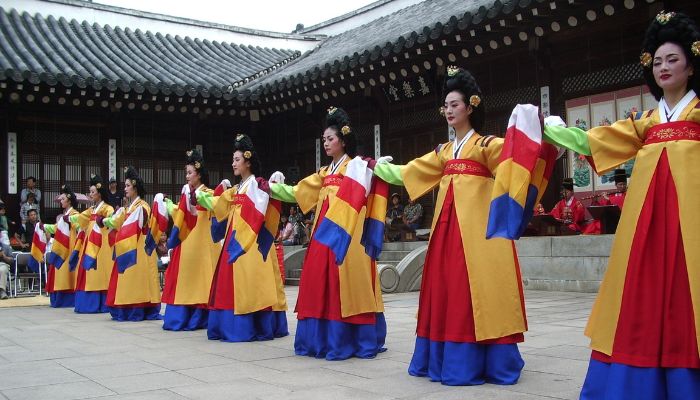How to talk about a traditional festival in your country for scoring band 9 in IELTS speaking test

Cue Card (Part 2) – Sample Question:
Describe a traditional festival in your country. You should say:
What the festival is called
When and where it takes place
What activities and events are part of the festival
And explain why this festival is important in your country
Sample Answer:
One of the most significant traditional festivals in my country is Diwali, also known as the Festival of Lights. Diwali is celebrated by millions of people across the country and is a major cultural event that symbolizes the victory of light over darkness and good over evil.
Diwali usually takes place in October or November, depending on the lunar calendar. The festival lasts for five days, and celebrations occur in homes, temples, and public spaces throughout the country. People from various religions and cultural backgrounds come together to celebrate this joyous occasion.
Some of the main activities and events associated with Diwali include decorating homes with colorful rangoli designs, lighting oil lamps called diyas, and setting off fireworks. Families and friends gather to exchange gifts, share festive meals, and participate in prayers and rituals. Many people also take this opportunity to clean and renovate their homes as a way to welcome prosperity and positive energy.
Diwali holds great importance in my country because it brings people together, regardless of their religious or cultural differences, and promotes unity and harmony. The festival also has deep spiritual significance, as it encourages individuals to reflect on their inner light and strive for personal growth. Furthermore, Diwali provides an opportunity for people to express gratitude, strengthen relationships, and celebrate the triumph of good over evil.
Part 3 – Sample Questions and Answers:
Q: How do traditional festivals contribute to a country’s cultural identity?
A: Traditional festivals play a vital role in preserving and promoting a country’s cultural identity by showcasing its unique customs, beliefs, and values. They provide opportunities for people to come together and celebrate their shared heritage, fostering a sense of belonging and pride in their culture. Additionally, festivals help pass down traditions and knowledge to younger generations, ensuring the continuation of cultural practices and strengthening the collective identity of a nation.
Q: What are the advantages and disadvantages of commercializing traditional festivals?
A: Commercializing traditional festivals can have both advantages and disadvantages. On the one hand, commercialization can boost tourism, generate economic growth, and increase global awareness of a country’s culture and traditions. It can also lead to improvements in festival organization and infrastructure. On the other hand, commercialization may result in the loss of authenticity and cultural significance, as festivals become more focused on profit and entertainment rather than preserving traditional values and customs. Moreover, commercialization can lead to overcrowding and environmental issues, such as pollution and waste.
Q: How can governments support and promote traditional festivals?
A: Governments can support and promote traditional festivals by providing funding, resources, and infrastructure for their organization and preservation. They can also create policies and regulations that protect and promote cultural heritage, such as designating certain festivals as national holidays or cultural events. Additionally, governments can collaborate with local communities, cultural institutions, and tourism boards to develop educational programs and marketing campaigns that raise awareness of traditional festivals and encourage both local and international participation.
Q: What role do traditional festivals play in modern society?
A: Traditional festivals continue to play an important role in modern society by providing opportunities for people to connect with their cultural roots, strengthen community ties, and celebrate shared values and beliefs. Festivals also offer a break from the routine of daily life and allow individuals to experience joy, togetherness, and a sense of belonging. Moreover, traditional festivals can serve as platforms for cultural exchange, fostering mutual understanding and respect between different communities and nations.
Q: How do traditional festivals vary across different countries and cultures?
A: Traditional festivals vary widely across different countries and cultures, reflecting the unique customs, beliefs, and histories of each region. Factors such as climate, geography, religion, and historical events can influence the timing, themes, and activities associated with a particular festival. For example, some festivals may celebrate the harvest season, while others may commemorate religious events or historical milestones. Despite these differences, many traditional festivals share common elements, such as the use of music, dance, food, and rituals to bring people together and express cultural identity.
Q: How can traditional festivals help promote global understanding and cooperation?
A: Traditional festivals can help promote global understanding and cooperation by providing opportunities for cultural exchange and dialogue between people from different backgrounds. As individuals participate in or observe festivals from other cultures, they can gain insights into the customs, values, and beliefs of those communities, fostering empathy, respect, and appreciation for cultural diversity. Moreover, festivals can serve as platforms for collaboration and partnership between nations, as they encourage the sharing of ideas, knowledge, and resources to preserve and promote cultural heritage.
Q: Do you think traditional festivals will remain relevant in the future?
A: I believe that traditional festivals will continue to remain relevant in the future, as they serve as important reminders of our cultural heritage and provide opportunities for people to connect with their roots, celebrate shared values, and strengthen community bonds. As the world becomes increasingly globalized and interconnected, the preservation and promotion of traditional festivals can help maintain cultural diversity and foster mutual understanding between different nations and communities. Moreover, festivals can adapt and evolve to reflect changing societal values and priorities, ensuring their continued relevance and appeal to future generations.

